Nature Knows and Psionic Success
God provides
Passionflower can reduce anxiety in just 30 minutes

( Natural News ) Mental health problems, such as anxiety, can be detrimental to the overall health and well-being of those who suffer from them. Anxiety is also often linked to other maladies, such as chronic insomnia. Thankfully, purple passionflower can be used as a natural remedy for treating anxiety and insomnia. Purple passionflower , also known as maypop, is a common wildflower from the Passiflora family of plants , of which there are 500 known species. Native Americans have used many of these plants for treating a variety of health conditions, including boils, wounds, earaches, and liver problems. Purple passionflower, in particular, is one of many herbs that can have a positive impact on both the chronic and acute forms of anxiety. (Related: Herbs for anxiety: Experts share the science behind some that are most effective .) How can purple passionflower reduce anxiety Studies suggest that purple passionflower can help calm the mind. It can do this by seemingly boosting the levels of gamma-aminobutyric acid (GABA) in a person’s brain. GABA is a compound that lowers brain activity, which in turn helps a person relax. The calming effects of purple passionflower can be experienced in as little as 30 minutes. One study found that it was successful in reducing anxiety after it was administered to patients who were about to undergo surgery and patients who were feeling anxious. After 30 minutes, it was observed that the patients who were given purple passionflower were significantly less anxious than the ones who were administered a placebo. 100% organic essential oil sets now available for your home and personal care, including Rosemary, Oregano, Eucalyptus, Tea Tree, Clary Sage and more, all 100% organic and laboratory tested for safety. A multitude of uses, from stress reduction to topical first aid. See the […]
Why every home should have a Himalayan salt lamp

( Natural News ) Himalayan salt lamps are made from pink salt crystals, which are mined from the edge of the Himalayan Mountains. Their color range from light pink to pink with an orange color, depending on the mineral concentration. These lamps have been gaining the attention of many people recently not only due to their attractive color, but also because of their health benefits . Here are some of them: Himalayan salt lamps purify the air: Salt is hygroscopic, which means that it attracts water molecules. These water molecules float around in every area of your home and may have other things attached to them, such as dust, pollen, mold, or bacteria. Himalayan salt lamps work by attracting the water molecules in the room and getting rid of them and the contaminants attached to them, improving the air quality in the room. (Related: The health benefits of keeping Himalayan salt lamps in your home .) Himalayan salt lamps boost your mood and increase your energy: Himalayan salt lamps also release negative ions into the surrounding environment and neutralize unhealthy positive ions. This occurs when the heat from the light bulb evaporates the water molecules. Having more negative ions in the air and less positive ions can help boost your mood and make you feel more energized. When negative ions reach the bloodstream, they produce biochemical reactions that increase serotonin, a chemical that helps relieve depression, reduce stress, and boost daytime energy. A study carried out by researchers at Columbia University also revealed that negative ions help in the treatment of seasonal depression . The study showed that people suffering from seasonal affective disorder (SAD) felt better and had less severe symptoms after being exposed to negative ions. The power of the elements : Discover Colloidal Silver Mouthwash with […]
Emulsifiers added to food may be causing cancer, new study finds

( Natural News ) Emulsifiers, food additives that are used to extend shelf life and create a better food texture, may be causing colon cancer and colorectal cancer , according to a study published in the journal Cancer Research . For the study, researchers in at the Institute for Biomedical Sciences at Georgia State University fed mice with polysorbate 80 and carboxymethylcellulose — the two most common additives that were linked to low-grade bowel inflammation and metabolic disease. The doses were replicated in the proportions these emulsifiers — the to human processed food. (Related: Common food additive linked to colon cancer and intestinal inflammation .) The intestine is protected from a variety of harmful bacteria with the aid of the mucous structures that cover the intestines. This keeps the harmful bacteria away from the epithelial cells that line the intestine. However, emulsifiers appear to help transport bacteria across epithelial cells. Based on the results of the study, emulsifiers severely change the composition of the gut microbiota in a way that increases inflammation, which in turn creates an ideal environment for the development and proliferation of colon cancer and colorectal cancer. Because of the alterations caused by emulsifiers, the bacteria in the gut displayed more flagellin and lipopolysaccharide — substances that activate pro-inflammatory gene expression in the immune system. The emulsifiers also changed the balance between cell proliferation and cell death, which promotes tumor development. When the researchers transplanted microbiota from mice that consumed emulsifiers to germ-free mice, it changed the balance in the intestine’s epithelial cells. This finding further supports the central role that the microbiota plays in tumor induction and development. The power of the elements : Discover Colloidal Silver Mouthwash with quality, natural ingredients like Sangre de Drago sap, black walnut hulls, menthol crystals and more. Zero […]
5 Things That Make Your Brain Age Faster, According to Science
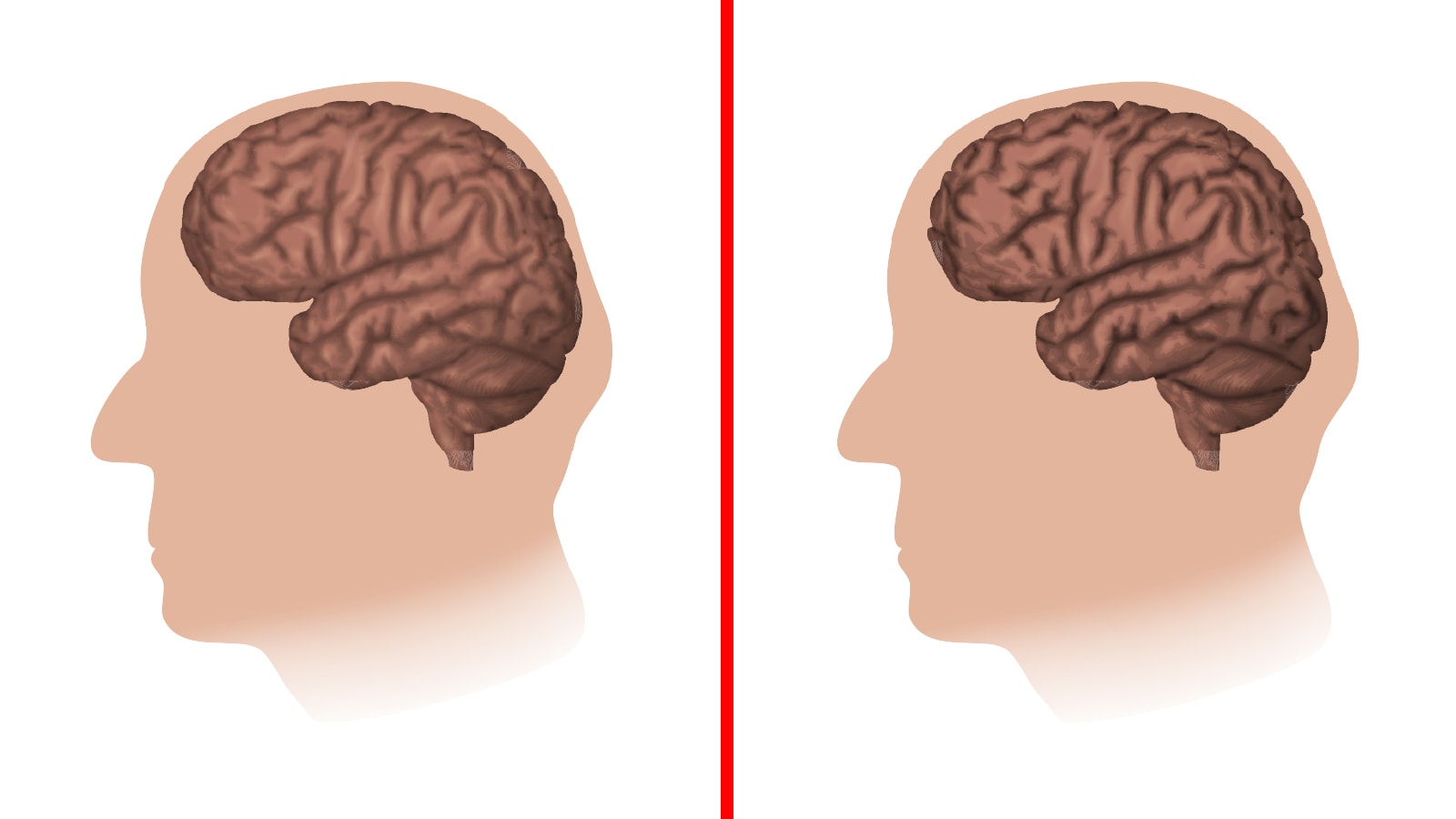
While aging is an inevitable part of life, we try, as much as possible, to hide the signs of growing old. When the first strand of white hair appears or when skin starts getting wrinkly, it’s natural to be concerned about finding solutions to slow down these markers of aging. But have you ever wondered about the habits that could make your brain age faster? Have you thought about the health of your brain now that you feel age creeping in? This must have happened to you a couple of times before: you enter a room in your house but you can’t remember why you went there. Or you’re having an animated conversation with a friend about a movie and your mind pauses to recall the name of an actor. Memory lapses are inevitably part of growing older, but you can still do some things to help slow down the aging of your brain. So let’s find out some things that make your brain age faster . Thankfully, we also have some suggestions on what to do so that you can prevent it from worsening. “If your brain is predicted to be older than your real age, that reflects something negative may be happening.” – James Cole 1. You’re not doing physical activities Do you like to veg out on the couch and watch TV rather than do exercises? Do you live a sedentary lifestyle and prefer sitting to doing anything physical? A study in the journal PLOS One revealed that sitting long hours can be bad for your brain as much as it is harmful to your body’s health. Apparently, the composition and functions in your brain greatly benefit from your physical fitness routines. Experts learned that people whose main activity in life is sitting tend to have […]
Tamarind found to remove dangerous fluoride deposits from bones

( Natural News ) Fluoride is everywhere these days. Perhaps you’re one of the 200 million Americans whose municipal water contains this neurotoxin, or maybe you’re worried about exposure via toothpaste. Sodium fluoride accumulates in the body and the brain, and high levels can bring about neurological damage. It might seem like there isn’t much you can do about it, but the fruit of one tree might be able to save the day: tamarind. This tropical evergreen tree is native to Africa, but it can now be found in places like Mexico, Australia, and South Asia. Pod-like fruits grow from these tall trees and, as they mature, they go from green and sour to brown and juicy with a sweet-and-sour pulp. It’s used in Indian cooking and also popular as a folk remedy. The flavor of the fruit might not be to everyone’s liking, but its benefits can make it far more appealing. A study that was published in the European Journal of Clinical Nutrition showed that it can remove risky fluoride deposits from your bones. In the study, researchers discovered that healthy boys who consumed a third of an ounce of the fruit for just 18 days noted significant enhancements in their urinary excretion of fluoride . In another study, boys who were given tamarind to eat for just three weeks noted additional fluoride excretion compared to a control group. That is good news for anyone who is concerned about the effects of fluoride , which are numerous and downright disturbing. It has been linked to everything from several types of cancer and reduced IQ to infertility, low thyroid function, and a debilitating bone disease. 100% organic essential oil sets now available for your home and personal care, including Rosemary, Oregano, Eucalyptus, Tea Tree, Clary Sage and more, […]
Three natural ways to improve your eye health

( Natural News ) At least six out of 10 individuals in the U.S. need corrective lenses to support their vision. Others turn to eye surgery, a procedure that has some risks, to permanently fix their eyesight. Most people think these are their only options. However, in the video below, which was uploaded on the official Healing the Body Brighteon channel , Derek Henry discusses three natural remedies that can give your eyes a boost in health. Henry is the founder of Healing the Body , a website that focuses on natural healing. Watch the full Brighteon.com video here: Liver health, eye exercises, and proper nutrition People rarely discuss natural ways to improve their eyesight, partly because some eye doctors don’t realize that there are other options and partly because these natural remedies threaten their livelihood. However, just because health professionals won’t readily suggest natural remedies to improve your eyes, doesn’t mean you should just take their word for it and automatically get fitted for a pair of eyeglasses. Here are three natural ways to support your eyesight. Cleanse your liver Keeping your liver clean and healthy can improve your eyesight. In fact, practitioners of traditional Chinese medicine believe that the liver and eyes have a unique connection and that compromising liver health can affect the eyes. The liver is the body’s main detoxification organ. Any free radicals that must be neutralized and excreted will mostly be targeted by the liver. If your liver is in poor condition, free radicals may increase in your bloodstream, which can result in the breakdown of healthy tissue, the delicate retina, and the macula of the eyes. A liver blood deficiency may also cause blurred vision, dry eyes , floaters, and short-sightedness. Mother Nature’s micronutrient secret : Organic Broccoli Sprout Capsules now available, […]
Seven Tips For Better Brain Health

Our brain changes as we age: our memory gets foggier, our joints start to creak. Researchers at Jefferson who conducted cognitive studies with black participants suggest that being active socially, physically, and mentally (or cognitively) may actually prevent memory loss in those who start showing signs of forgetfulness. While this might sound familiar, the science suggests that the trick is to set achievable, or small goals, and to do them consistently, integrating them into everyday life. “Many people feel, ‘I’ve worked my whole life, retirement is my time to rest,’” said Joann Akpan, Clinical Research Coordinator at Jefferson, who helped participants set and keep goals for more active living as part of the study . “People don’t realize that our bodies and minds stop working as well when we don’t use them.” Keeping brain, body, and social life active — all three, if possible — may significantly help reduce memory loss. In fact, study participants who set and met activity goals saw an 88 percent reduction in risk of memory loss compared to those who didn’t. But finding ways to set and keep realistic goals isn’t easy. Only about 9 percent of people who set New Year’s resolutions ever complete them. Akpan and study authors, Barry Rovner and Robin Casten, were asked for seven tips on finding and setting effective activity goals that enhance brain activity and that all older adults can stick to. Start With A Script If you’re helping a family member with memory loss, create a script you can follow to start the discussion and avoid landmines. (Use the tips and activity suggestions below to guide your scripting.) “It can be difficult to talk to loved ones about their memory loss – it can be scary, they may get defensive, and not want to engage,” said […]
Former vet student turned neuroscientist launches nootropic supplement based on efficacious doses

Curcumin, derived from turmeric root, is one of the ingredients in the new product. Daryl Jones, PhD, began his career at a veterinary school in London. While there, he did some work on the Mad Cow Disease outbreak. In the years since the initial outbreak in the UK more than 200 people who ate tainted meat have been affected. The infection in humans results in variant Creutzfeldt-Jakob disease, a neurodegenerative condition. Comparing the pathologies of this condition with other neurodegenerative conditions, such as Parkinson’s disease, sparked Jones’ interest and led him along another career path toward becoming a neuroscientist. Nootropic powerhouses During a stint at the Mayo Clinic in Jacksonville, FL, Jones said he became acquainted with nutritional compounds that could have a profound impact on brain health. He decided to branch out into product development on his own and founded the firm Jonescientific, which is launching a brain health supplement called Sophrosyne. The product is based on four ingredients. Jones said he wanted to pare the active ingredient list down only to those best supported by the evidence. And in doing so, he said he could afford to include efficacious amounts that correspond to what was used in the underlying studies. “Our research shows that these four nootropic (cognitive enhancing) ingredients, consumed in a daily capsule, deliver the most impressive results in improving cognition and memory compared to any other supplement available on the market,” he said. The found main ingredients are: Withania somnifera . This plant – commonly known as Indian ginseng, Ashwagandha or winter cherry – has been proven to regenerate damaged brain cells. Curcumin . A natural chemical produced by some plants, featuring antioxidant properties, this ingredient has shown to help maintain a healthy environment within the brain by removing unwanted proteins. An 18-month […]
Are Nootropics Legit Or Just Another Health Fad?

People take supplements for all kinds of reasons: for a healthy pregnancy , for thicker hair , for fewer headaches, for stronger bones, and so on. But some health-conscious people are drawn to a type of supplement called nootropics, because they promise to improve your mental performance and make you smarter. Moon Juice sells a nootropic Reishi mushroom powder that it says is a, "powerful brain tonic, long used to energize and enhance mood, and support concentration." Sounds promising, but what even does that mean? "Nootropic" essentially means something that enhances your cognition, says Philip Muskin , MD, professor of psychiatry at Columbia University Medical Center’s Department of Psychiatry. "There are a bunch of things that fall into that class," he says. For example, stimulant drugs like Adderall and Dexedrine are nootropics. And even things like caffeine, nicotine, and L-theanine could be considered nootropics, because they have a stimulant effect, he says. "Though, honestly there’s nothing that is truly like, Wow, this will make you a genius ," he says. Some nootropic supplements claim that they’ll make you so smart that you’ll have an "unfair advantage," but that is a stretch. For a quick neurology lesson, we know that memory and cognition have to do with various circuits in the brain, Dr. Muskin says. The only way to make your brain work better, so to speak, is to keep using these circuits. "The more we use circuits, the more the synapses grow, and the faster and more efficient [the brain] is," he says. Best Psoriasis Treatment First Symptoms Of Rheumatoid Arthritis So, taking stimulant drugs or supplements can’t make you smarter, but they could make you more focused, which would allow you to get more done, Dr. Muskin says. For example, lots of people assume that taking Adderall makes […]
Curcumin is a powerful polyphenol that can combat the effects of chronic stress
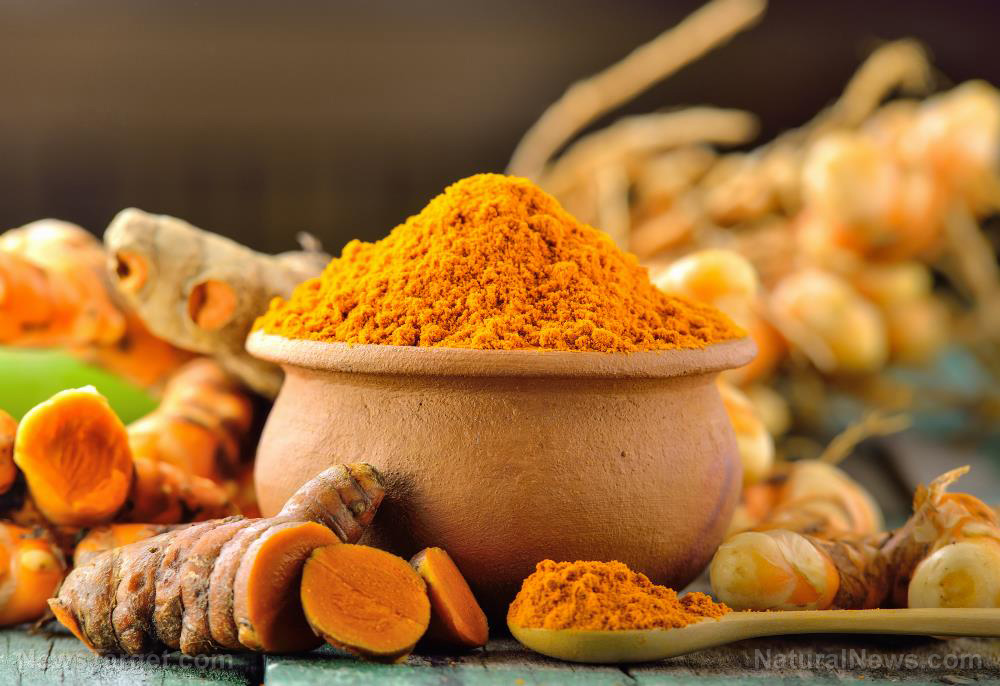
( Natural News ) Turmeric has been used to add flavor and color to food for thousands of years, but over the last decade, it has gained worldwide popularity not for its use in the kitchen but because of its many health benefits. Although there is already a long list of beneficial properties that this golden herb has, researchers continue to find even more reasons why people should include this in their diet. Recent studies found that curcumin, the main active ingredient in turmeric, can prevent the harmful effects of chronic stress . With everything that’s going on in the world, it’s normal to feel stressed. However, constantly being in this state can have repercussions on a person’s health. This condition, known as chronic stress, is characterized by increased production of the stress hormone cortisol and a consequent increase in the size and weight of the adrenal glands that produce it. Moreover, it also prevents antioxidants from neutralizing harmful free radicals, thereby allowing them to induce oxidative damage on the cells. Collectively, these effects increase a person’s risk for health problems especially those that are related to brain functions, such as anxiety, depression, poor memory and concentration, and sleep problems. Fortunately, there are natural remedies like turmeric that can reverse these changes. Among the 100 compounds found in turmeric , the yellow pigment curcumin remains the most popular even if it makes up just about five percent of the spice. This is because of the wide array of benefits associated with this compound. Its ability to reverse the effects of chronic stress is one of its most recently proven benefits. This was observed through multiple studies – not just in animal models but even in human clinical trials. Mother Nature’s micronutrient secret : Organic Broccoli Sprout Capsules now available, […]
Is your cellphone a psychotronic weapon that’s controlling your mind? Some experts think so

( Natural News ) Mobile “smartphones” emit a barrage of electrical signals and frequencies that, according to Peter A. Kirby from Waking Times , render such devices as psychotropic weapons capable of both destroying and controlling people’s minds. It actually comes at us from many sources these days, Kirby says, referring to the pervasive and constant threat of electromagnetic pollution everywhere we go. WiFi routers, cell towers, “smart” appliances, power grids, and more all emit electromagnetic energy pulses that directly interfere with our thoughts, emotions, moods, and even bodily functions, he warns. As generally opposed to naturally occurring fields of the Earth’s magnetic energy, man-made fields of electro magnetic energy have been found to be generally bad for Humans,” Kirby writes. “A preponderance of the best evidence suggests that they cause cancer. If this wasn’t bad enough for city dwellers, electromagnetic energy can also be weaponized and may be used against us routinely.” Cell phone mind control is part of New Manhattan Project In his book, Chemtrails Exposed: A New Manhattan Project , Kirby explains how the concept of psychotropic weaponry is nothing new. Electromagnetic energy has long piqued the interest of researchers from NASA, the Navy, the Department of Energy, and many others who’ve tried to harness it as a weapon of warfare. What they know that most lay-people still don’t is that electromagnetic energy can, and does, influence how humans behave and function. Extremely Low Frequency (ELF) electromagnetic energy is particularly effective, as its frequency range mirrors that of what the brain naturally sends and receives. The power of the elements : Discover Colloidal Silver Mouthwash with quality, natural ingredients like Sangre de Drago sap, black walnut hulls, menthol crystals and more. Zero artificial sweeteners, colors or alcohol. Learn more at the Health Ranger Store and help […]
Synapse Closes $1 Million Seed Funding Round

ATLANTA, Ga. – Synapse , a natural energy drink alternative designed to boost mental performance without the use of caffeine, announces today the completion of its Seed Funding Round. To date, the company has amassed $1 million dollars in funding. Investors in the Seed Funding Round include beverage industry executives, medical professionals, convenience retail executives and several highly notable private investors in the consumer packaged goods space. Synapse got its start in 2016 as part of the Georgia Tech CREATE-X Startup Launch program, where neuroscience scholar Daniel Porada and biomedical engineering student Charles Lankau had the idea to create a natural energy product that would optimize the body and mind to provide college students with a powerful boost to aid them in their studies that didn’t come at the cost of their health. Shortly after completing the program, the team added beverage industry leader Shouvik Ganguly (previously with The Coca-Cola Company) to provide needed expertise and operational experience. Prior to this round, the team went on to raise two small rounds of friends and family funding to complete research and development on the product and enter the marketplace on a limited scale between 2017 and 2018. Concurrently with the successful close of this oversubscribed seed round, Synapse recently concluded its testing phase to move forward with the next level of proof of concept. The testing phase involved successful retail pilots in 30 locations across Atlanta, Georgia, and 4 busy airports, with consistent increase in rate of sale––indicating strong repeat purchasing behavior. The co-founders tested a wide variety of channels, including work, natural grocery, travel, convenience and on-campus, with great success. The company is now in the planning phase with key distribution partners, and with this investment, Synapse aims to expand its footprint across the Southeast in 2019, and subsequently […]
5 nootropic foods to boost brain function

These foods have the same brain-boosting properties as nootropic supplements. (Photo: marilyn barbone/Shutterstock) There’s a popular category of dietary supplements known as nootropics that claim to boost memory and help with cognitive function. Much of the research on these supplements has been industry funded — meaning the companies that create the supplements pay for the research — and since the Food and Drug Administration doesn’t regulate supplements, you can’t always be sure of what’s in them. But you don’t need to take nootropic supplements to get memory enhancing benefits. Plenty of foods can be considered nootropics, and these same foods have plenty of other health benefits as well. Before you purchase expensive supplements to boost your cognitive abilities, try including these brain-boosting foods into your diet. Eggs Eggs contain a brain-benefiting nutrient called choline. (Photo: Africa Studios/Shutterstock) When researchers followed 2,500 men in Finland for 22 years , they found that men who ate the equivalent of one egg a day during those years performed better in certain cognitive tests than men who ate fewer eggs. Eggs contain a good amount of choline, which the brain converts into acetylcholine, a neurotransmitter that helps brain cells communicate and keeps memories intact. In addition to brain-benefiting choline, whole eggs include calcium, iron, zinc, selenium, phosphorous, and vitamins A, D, E and K, as well as heart-healthy omega-3 fatty acids. Turmeric Turmeric contains a compound called curcumin, which doctors say may improve memory. (Photo: NADKI/Shutterstock) Turmeric contains the compound curcumin, which doctors say could improve memory in those who suffer from mild cases of memory loss. In a 2017 study , researchers gave half the participants curcumin and half a placebo for 18 months. Those who were given curcumin had a 28 percent improvement in memory and attention — plus they showed […]
EMF radiation found to affect memory in young people

( Natural News ) Smartphones are a considerable part of daily life these days. And while they have led to revolutions in terms of convenience, communication, entertainment, and others, studies have, time and time again, proven that they have adverse effects on their users. One particular research found that constant exposure to radiofrequency electromagnetic fields (RF-EMF) emitted by cell phones and other communication technologies can impair the memory of young individuals . The study, published in Environmental Health Perspectives and titled HERMES ( H ealth E ffects R elated to M obile phone us E in adolescent S ), followed 700 participants aged 12 to 17 for one year. All of these young people were public school students in both urban and rural regions in Switzerland. The study investigated the relationship between exposure to RF-EMF and memory performance. The researchers asked the participants to fill out questionnaires that inquired about their cell phone usage, as well as other factors related to their mental and physical well-being. Researchers also collected the young people’s cell phone user data to maximize objectivity. This step made the research the first of its kind to examine the cumulative dose of RF-EMF in adolescents. To gauge any changes in the participants’ mental performance, the researchers had them take a series of computerized cognitive tests. Here, they found that cell phone use and the resulting RF-EMF exposure resulted in “a negative effect on the development of figural memory performance in adolescents.” Figural memory is a right-brain function that pertains to the ability of the brain to remember images. It was found that impairments in figural memory correlated with the amount of exposure to RF-EMF. Moreover, the impairment was more pronounced in individuals who used their phones on the right side of their head. 100% organic essential […]
Curcumin shows tremendous promise in curing Alzheimer’s disease
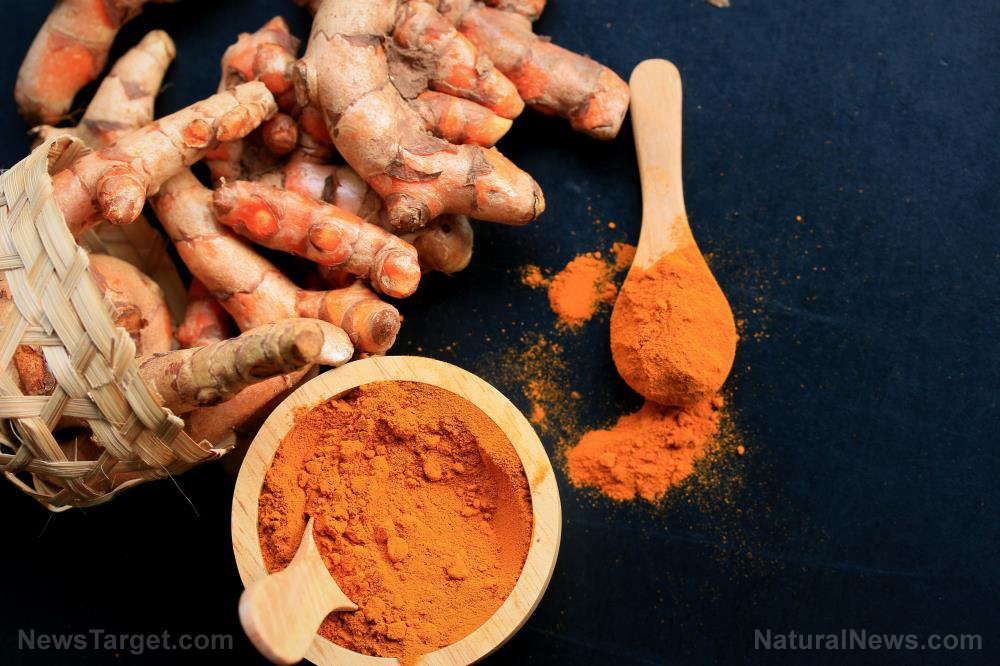
( Natural News ) Turmeric has been used in food and medicine for thousands of years. Now, a growing body of research has shown that this prized spice can help fight Alzheimer’s disease — not only as a preventive, but as a cure. With estimates suggesting that nearly 14 million adults in the United States alone will be affected by Alzheimer’s disease by 2050, turmeric’s potential to treat and prevent this debilitating condition cannot be ignored by mainstream medicine any longer. Experts are describing the effects of turmeric on Alzheimer’s patients as “remarkable,” if that’s any indication. Turmeric, like other plant medicines, has largely been ignored thanks to the pharmaceutical industry’s all-consuming grip on modern medicine, but scientists are beginning to wake up to the fact that medicinal plants do exist — and they outperform Big Pharma’s concoctions any day of the week. A study finds promise in turmeric for Alzheimer’s disease As Sayer Ji, founder of Green Med Info , notes that turmeric has been a staple in India for over 5,000 years. To this day, both urban and rural areas of the country display some of the lowest rates of Alzheimer’s disease in the world . Recent research has shown that taking a daily turmeric supplement for three months produced sizable benefits in Alzheimer’s patients. Patients were given a daily dose of 764 milligrams of turmeric, containing 100 milligrams of curcumin. Curcumin is an active compound found in turmeric, and is highly regarded for its health benefits. 100% organic essential oil sets now available for your home and personal care, including Rosemary, Oregano, Eucalyptus, Tea Tree, Clary Sage and more, all 100% organic and laboratory tested for safety. A multitude of uses, from stress reduction to topical first aid. See the complete listing here , and help […]
Microlearning and the Brain

Microlearning abounds in the learning and development sector. However, there is confusion around the term’s use, and many incorrectly identify it as simply “short duration training.” Microlearning is more accurately defined as: An approach to learning that conveys information about a single, specific idea in a compact and focused manner. A learning technique that operates within the learner’s working memory capacity and attention span, providing just enough information to allow the learner to achieve a specific, actionable objective. For example, if a personnel manager was interested in obtaining information about unconscious bias, they might watch a brief piece of video content focused on the definition of unconscious bias and how it can affect leadership behaviors in the workplace. The information would be presented in two to three minutes and would convey a single idea with as few “extras” as possible. The short duration, singular focus and limited extras ensure the learner’s attention span and working memory capacity are not exceeded. The overwhelming majority of L&D vendors market microlearning as a major component of their offering, as well they should. Microlearning offers an ideal approach for engaging the cognitive skills learning system in the brain. The cognitive skills learning system is one of at least three learning systems in the brain that includes the emotional learning system and the behavioral skills learning system. A schematic of these three systems, along with the relevant brain structures, is displayed below. The cognitive skills learning system relies on the prefrontal cortex, is limited by working memory and attentional processes, and is the primary system in the brain for learning hard skills. Combine microlearning with testing and targeted retraining that is spaced over time and you have a tool that speeds the transition from short-term memory in the prefrontal cortex to long-term memory in […]
Just 10 minutes of brisk walking and meditation can significantly reduce anxiety

( Natural News ) Anxiety can take many forms for different people. It can manifest as social anxiety, which causes people to avoid social situations, or it can present itself as separation anxiety, which causes people to experience excessive fear if they are kept away from certain people or places for long periods of time. It can even take the form of phobias or irrational fears. Either way, anxiety can often be debilitating for many people and can negatively impact their overall health and well-being. Anxiety may often be difficult to manage, but it is not impossible. Research shows that anxiety can be greatly reduced with the help of brisk walking and meditation. There are many ways that people can help control their anxiety , such as avoiding alcohol, undergoing therapy, and joining support groups. Regular practice of exercise and relaxation techniques are also effective methods in reducing anxiety. Physical activity isn’t just for maintaining physical fitness but can improve mental fitness as well. Research suggests that a brisk 10-minute walk may serve just as well as a 45-minute workout in relieving anxiety. Some studies suggest that regular aerobic exercise may even be just as effective as medication in reducing anxiety symptoms. It can even provide anti-anxiety effects that can be felt in as little as five minutes. The effects may be temporary at first, lasting for only a few hours, but by following a regular exercise schedule, the results can become long-lasting. Additionally, exercise can deliver multiple other health benefits, such as helping in the reduction of one’s overall tension levels, the elevation and stabilization of one’s mood, and the improvement of one’s sleeping patterns and self-esteem. (Related: Could you have high-functioning anxiety? Here’s what you can do to reduce your fear AND continue to stay successful. ) […]
Whole foods can protect the brain from mood disorders
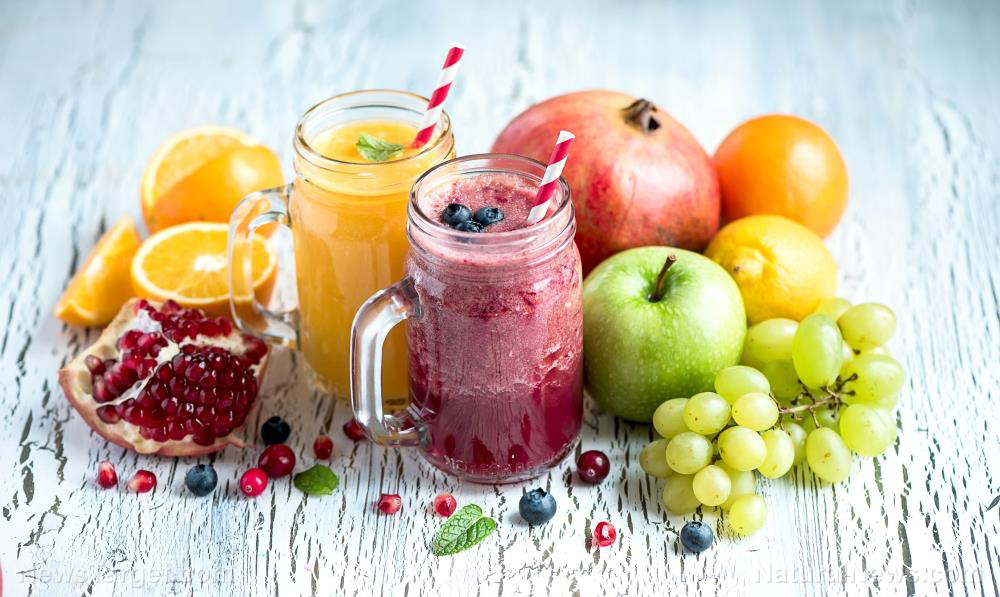
( Natural News ) Whole foods are a those that have undergone as little processing or refinement as possible. Unlike processed foods, whole foods exist in their purest, most natural form – free from any chemicals, preservatives, and additives. As they are abundant sources of nutrients, vitamins, and minerals, they can provide many health benefits, including helping protect the brain from mood disorders. The line between what consists of whole foods and what does not is a fine one. For instance, a potato is considered a whole food, while a potato chip is not . The bottom line: Whole foods are those that remain closest to their natural form. They are not produced in a factory or manufactured. Whole foods are often greatly associated with fruits and vegetables, but unprocessed meats can be considered whole foods as well. How whole foods can improve mental health Inflammation refers to cellular damage that is caused by the byproducts of metabolism, pollution, sun exposure and various other environmental stressors. Chronic inflammation is also linked with oxidative stress. Research shows that inflammation can be dangerous because it can lead to physical problems such as cancer, but it can also lead to mental health problems, such as schizophrenia and depression. Inflammation can be alleviated with the help of an anti-inflammatory diet. Fortunately, some of the best examples of anti-inflammatory foods are whole foods. Certain whole foods such as berries, beans, and citrus fruits are especially rich in antioxidants and also have anti-inflammatory properties that can improve mental health. Antioxidants also help prevent oxidative stress. By eating an anti-inflammatory diet of whole foods packed with antioxidants, you can help protect yourself from a wide range of physical and mental conditions associated with inflammation. 100% organic essential oil sets now available for your home and personal […]
LGBT movement exploiting vulnerable autistic children to “trick” them into becoming transgenders

( Natural News ) An anonymous whistleblower and teacher from Great Britain has brought some shocking claims to the table about transgender indoctrination that she says is taking place in British public schools – particularly against autistic children whom she says are being actively manipulated and “tricked” into thinking that they’re the opposite sex. As reported by the Daily Mail Online , this woman, whom the media is referring to as “Carol,” says there are currently 17 students at her school, which is also unnamed, who all identify as transgender. And most of them, she explains in horror, are on the autism spectrum. In order to feel “accepted” by other students at the school who have already made their “transition” to the opposite sex, younger students, mostly autistic, are being preyed upon to “switch” genders by the growing transgender lobby, Carol contends. “I congratulate this teacher for coming out and telling us what I have long suspected has been going on in schools,” stated conservative M.P. David Davies, as quoted by the Daily Mail Online , upon hearing the news. “It is horrendous that children are being encouraged by other pupils to identify as transgender, particularly if they have autism.” “Parents are not told about this and there is no way of challenging these pupils who are convinced by others that they have a problem they almost certainly do not have. Tragically the end result could be irreversible surgical procedures. This is scandalous.” Mother Nature’s micronutrient secret : Organic Broccoli Sprout Capsules now available, delivering 280mg of high-density nutrition, including the extraordinary "sulforaphane" and "glucosinolate" nutrients found only in cruciferous healing foods. Every lot laboratory tested. See availability here. At least one-third of children who opt for NHS transition surgery show “moderate to severe autistic traits” As shocking as […]
12 Best Brain Booster Supplements and Cognitive Enhancement Pills 2018
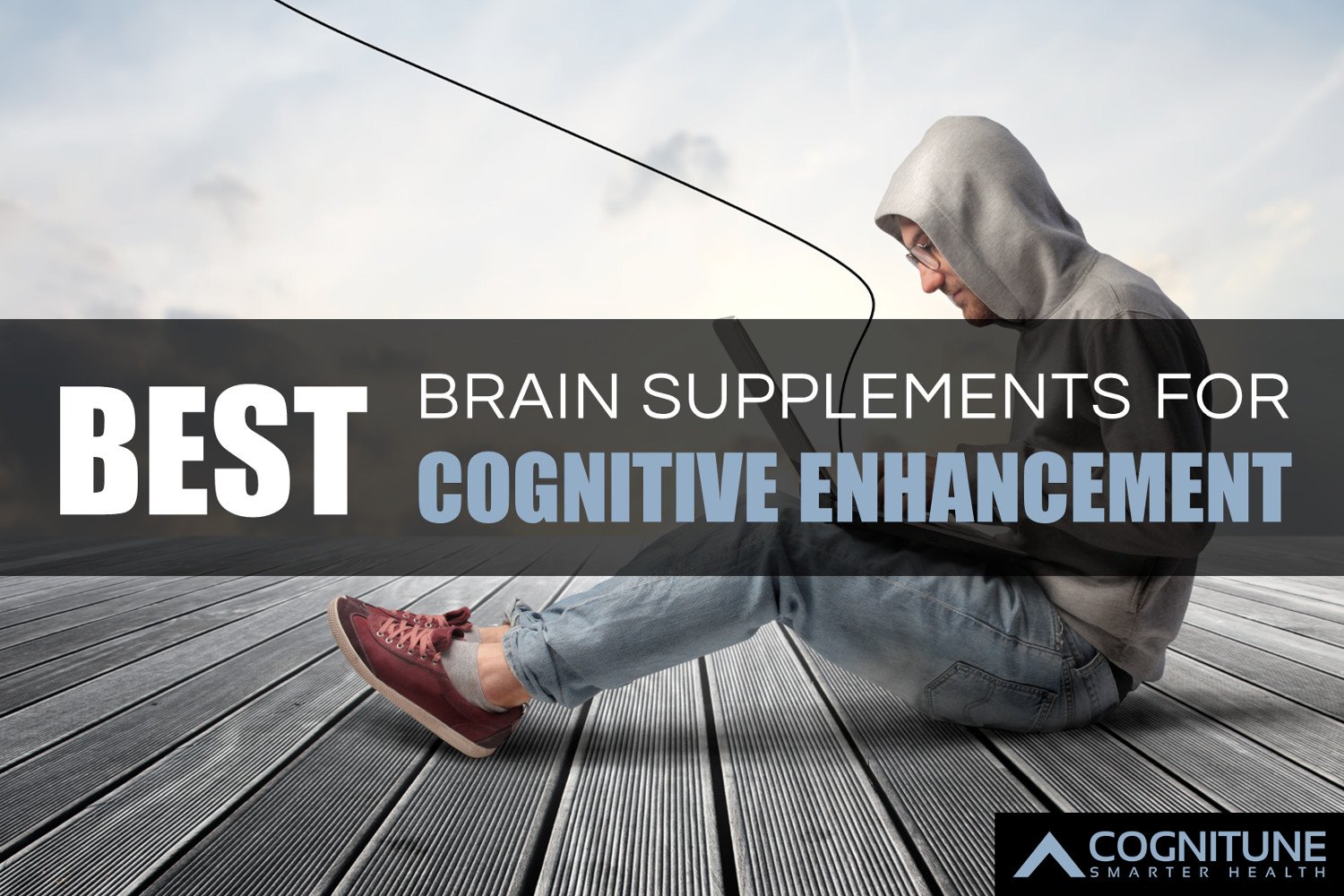
Article Contents 1 – Best Brain Boosting Supplements & Pills 2018 1.1 – Omega-3 Fish Oil 1.2 – Phosphatidylserine 1.3 – Alpha GPC 1.4 – Huperzine A 1.5 – Caffeine 1.6 – Acetyl-L-Carnitine 1.7 – Vinpocetine 1.8 – Ginkgo Biloba 1.9 – Bacopa Monnieri 1.10 – Rhodiola Rosea 1.11 – Panax Ginseng 1.12 – Turmeric Curcumin 2 – Final Thoughts on Brain Booster Supplements & Pills 3 – References The world is becoming more competitive by the day. The more competitive the environment, the more you need a mental edge. Curing brain fog is the difference between accomplishment and the proverbial “writer’s block.” Are brain supplements and nootropics the answer to enhancing productivity? It’s possible. What can we expect from supplements that claim to boost mental performance? You won’t find a real-life limitless pill out there. No such drug exists that turns you into a genius or a millionaire overnight. But, there are many supplements and brain pills that can increase cognitive function. These brain boosters may be enough to kickstart your new path to success. Enhance your focus, energy, and motivation. Improve your memory retention, mood, and more with our list of nootropics below. In this post, we’ll cover the 12 best supplements for brain health in 2018. Our list includes the following natural brain enhancers: Omega-3 Fish Oil, Phosphatidylserine, Alpha GPC, Huperzine A, Caffeine, Acetyl-L-Carnitine, Vinpocetine, Ginkgo Biloba, Bacopa Monnieri, Rhodiola Rosea, Panax Ginseng, and Turmeric Curcumin. Your brain is a machine. These natural supplements help you optimize its performance. There are several nootropics out there. But we’re only covering the best performing and most popular supplements. We’ve excluded racetams and other prescription brain-enhancing drugs from this conversation. Modafinil, Adderall, and the likes are topics for another post. You can learn more about these cognitive enhancers on […]
